I discovered Havetid years ago when I was headed to Belgium for a month. I was looking for places (gardens, museums, off-the-beaten-path explorations) that I wanted to enjoy in the region. In my search, I discovered the Havetid garden blog. It turned out that the garden itself was beyond the range of my expected travels (It is in Silkeborg, Denmark), but even without an in-person visit, I found the site and the images of the beautiful garden full of garden design ideas and planting inspiration. I encourage you to dive into Inger and Jørn’s website and discover some inspiration for yourself – but in the meantime, these were some of my favorites with some notes about how I am translating the design ideas.
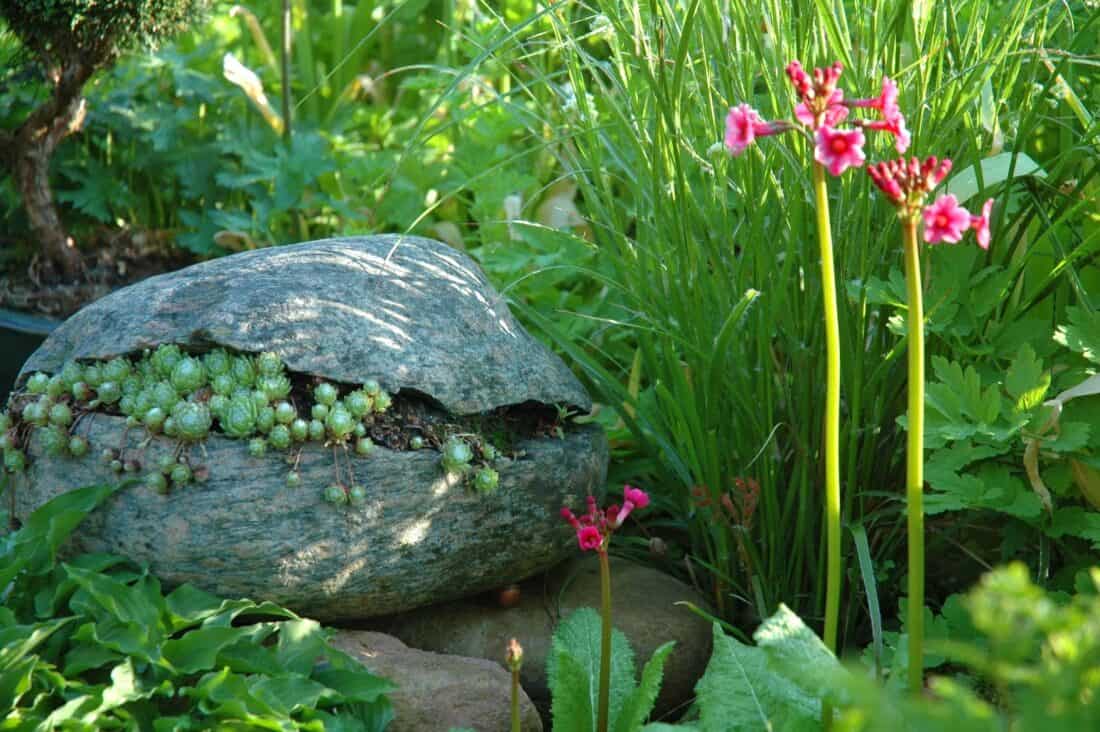
The clamshell stone planter
Inger and Jørn have created a beautiful garden that is full of interesting ideas. Their blog is a treasure trove of images of what appears to be every corner of the garden. I pulled a few of my favorites that gave me interesting ideas. I am contemplating how I might break a rock such as this so that I, too, can plant a tiny sedum or chicken and hens (sempervivium) garden inside. It looks like a clamshell and is a particularly eye-catching focal point.
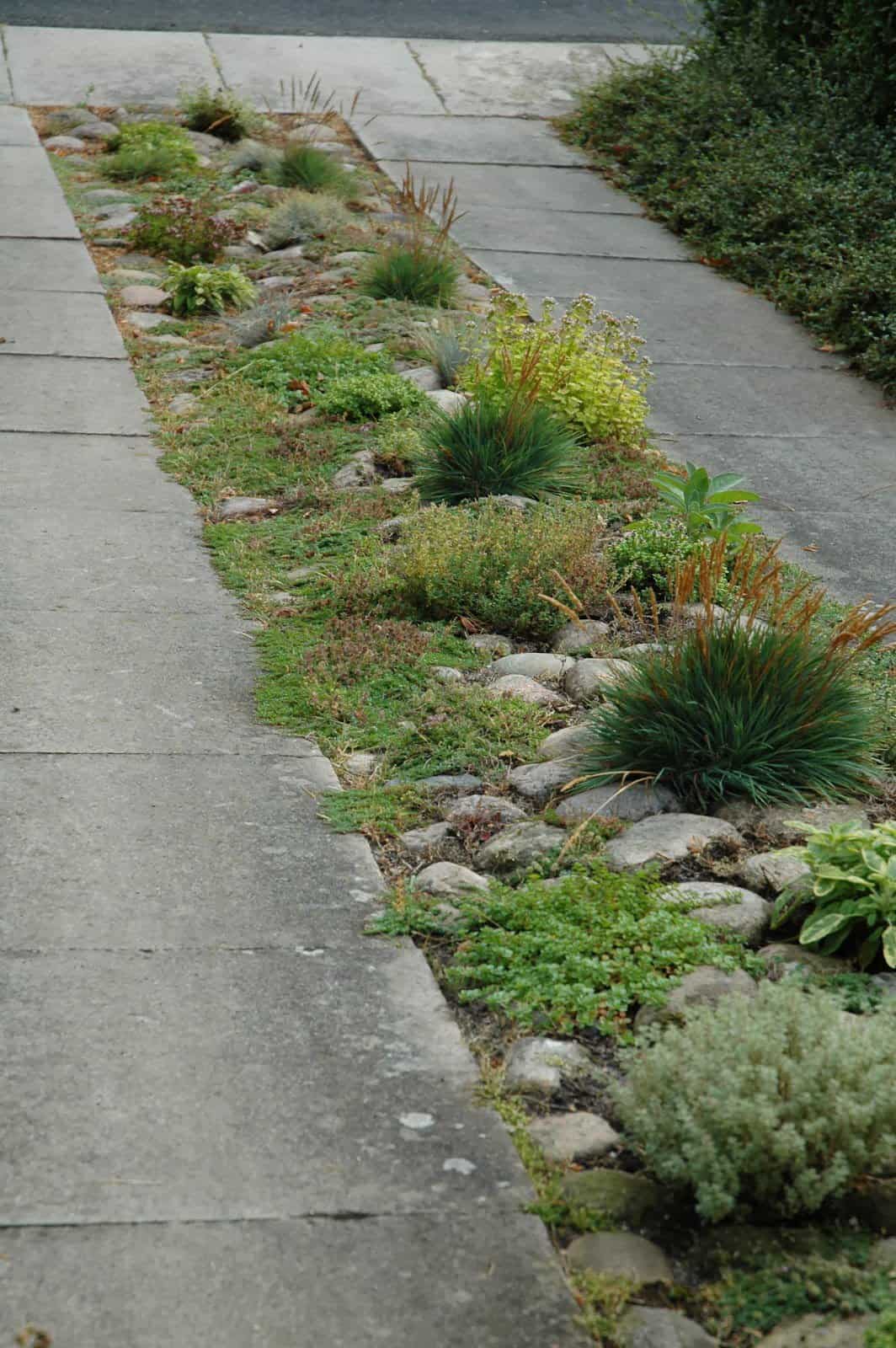
A sedum and herb-filled center driveway garden
Why have a solid driveway when you can have something planted down the middle? And why settle for turf or a singular ground cover when a pretty rock garden with mixed sedums is even more interesting? This driveway rock garden is filled with tough, low-growing plants. (I am noting fescue (Festuca), Thyme, Oatgrass (trisetum), sedum varieties, and sage.)

An eye-catching green-on-green planting scheme
An all-green garden can be interesting even though you don’t have lots of colors to excite your eye. Keep the interest high by pairing a variety of interesting textures. In this garden, the cobbles, the European ginger groundcover, hostas, ferns, bleeding hearts, and box woods of various shapes give plenty of interest. All of these plants are easy to grow and shade-tolerant.
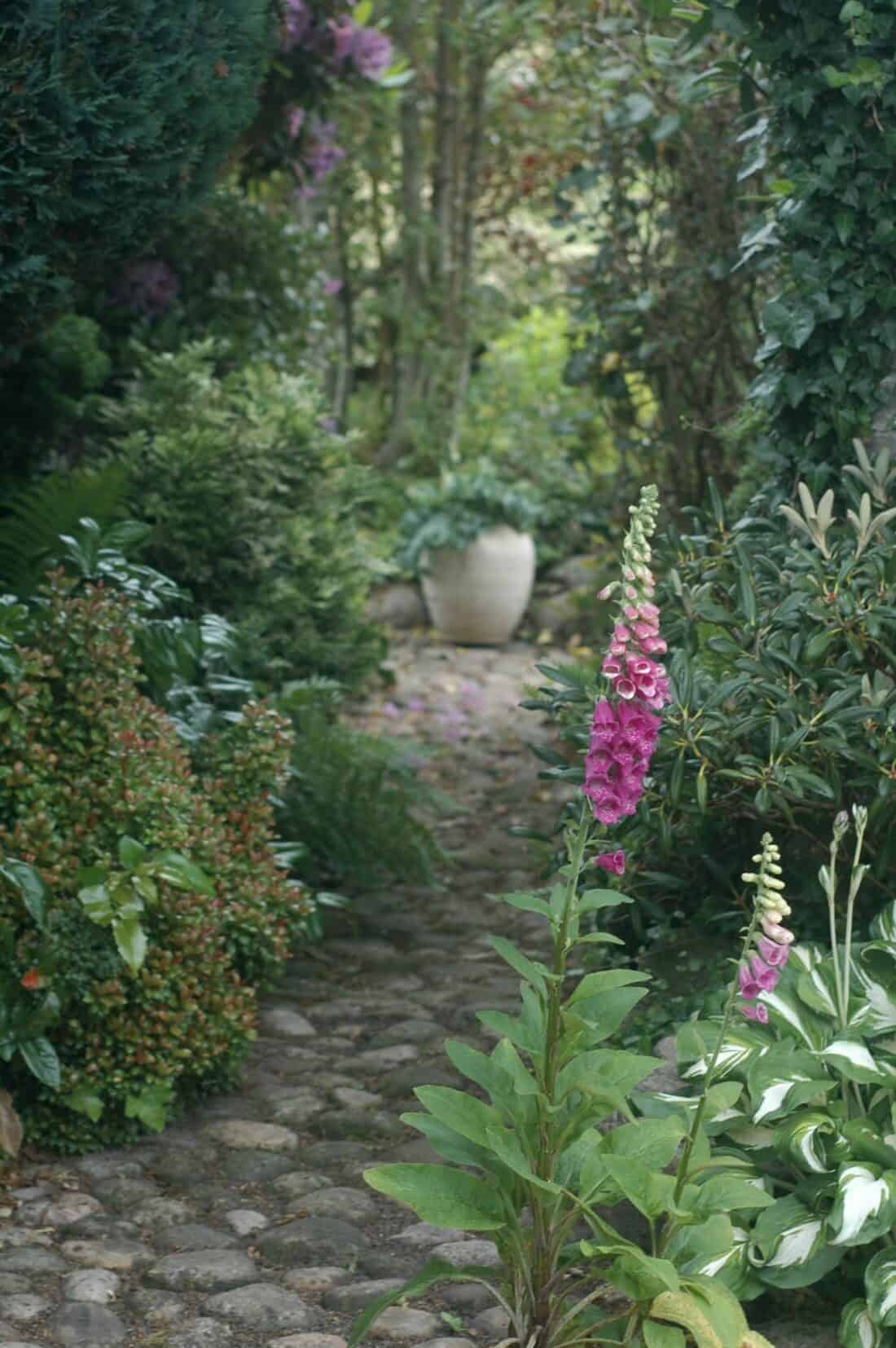
A palette of colors that is subtle and quiet
This garden does not have a riot of color but instead embraces a more container palette of soft pinks, white, and many shades of green.
There is a constant drumbeat in the world of plant breeding and marketing – it is that gardeners want and need more color. Plant sellers insist that consumers want color, color, color! But do they?
I find this persistence for more and ever brighter colors leads so many people down a path of garish design chaos. It requires garden makers to add another layer of expertise to their arsenal of garden-making skills (aka color expert), and the results are often less than desirable.
I love how this garden is comfortable with a simple few colors that provide more than enough interest. The key is density and contrast, always.
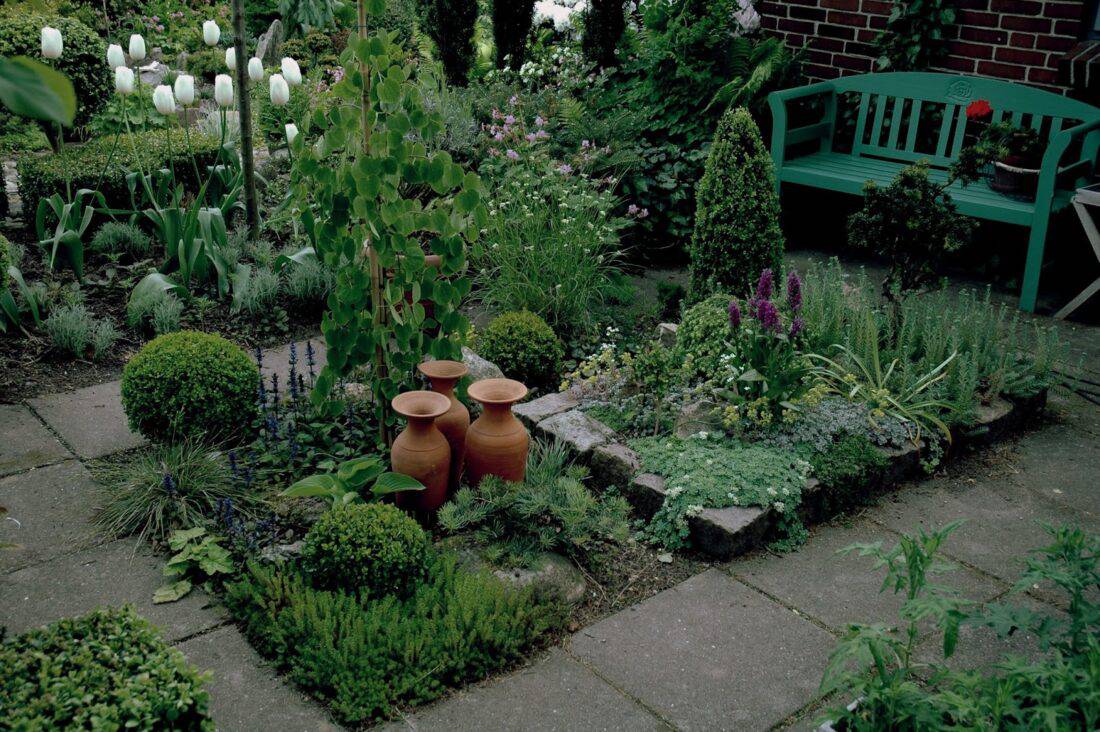
Dissect your eye path when you find something that looks pleasing
I like this image – and when you see something that pleases you, it is worth dissecting it to figure out why.
In visual arts (like garden design), it is helpful to pay attention to your eye path. What do you notice first, second, third, etc, as you take in a scene?
If you have something small (like an undersized terracotta vase), you can make it have a much bigger impact by using more than one. This grouping of earthy vases would not look as striking if the vases were placed differently.
Consider If there was only one, it might look too small and would feel fiddley. Or, if the vases were spaced out around the bed, your eye path would have jumped around from one vase to the next, probably providing too much confusion (which one do you look at first?).
In this image, the Terracotta vases give one focal point. The orange is contrasting with all the other colors – it is what most people will notice first. It is substantial enough to look purposeful and thoughtful.
Once you take in the main focal point element, your eye can then easily start to take in other elements of the scene. (My eye goes to the white tulips next – where does yours go?)
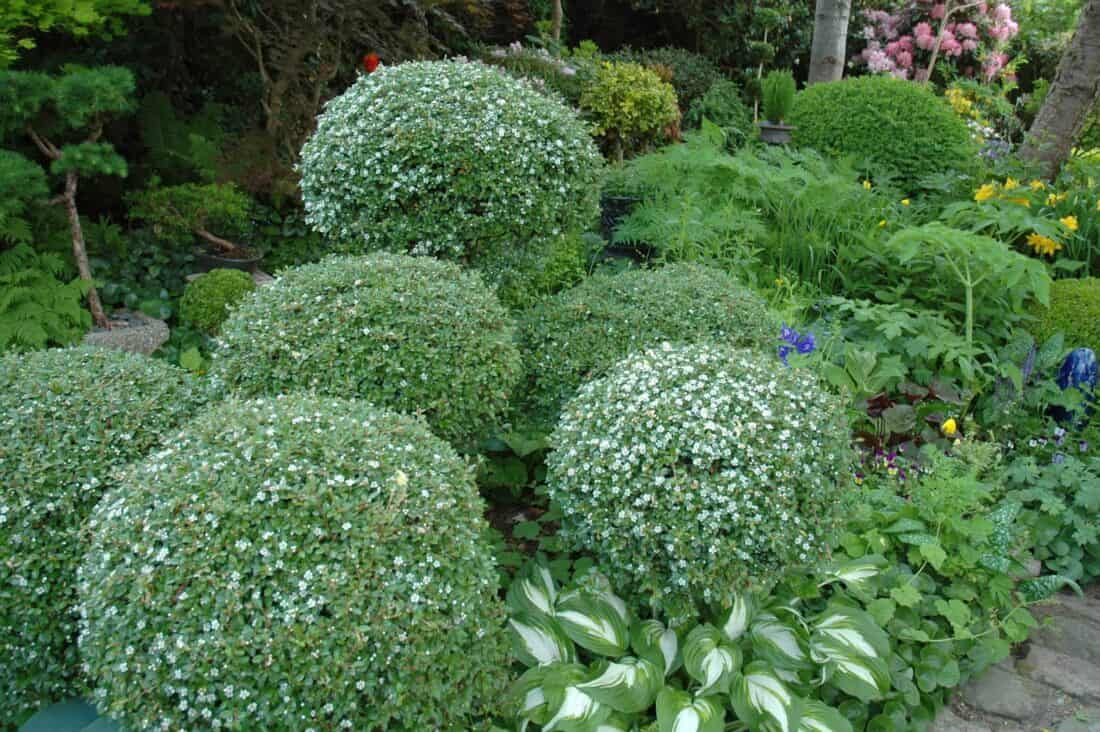
Unexpected Plants
Those gorgeous round balls aren’t boxwood – they are cotoneaster (Cotoneaster dammeri “Rami”). I had to double-check because I could not believe my eyes – but yes, they are really cotoneaster. If you want to know more about how these were created, check out this post.
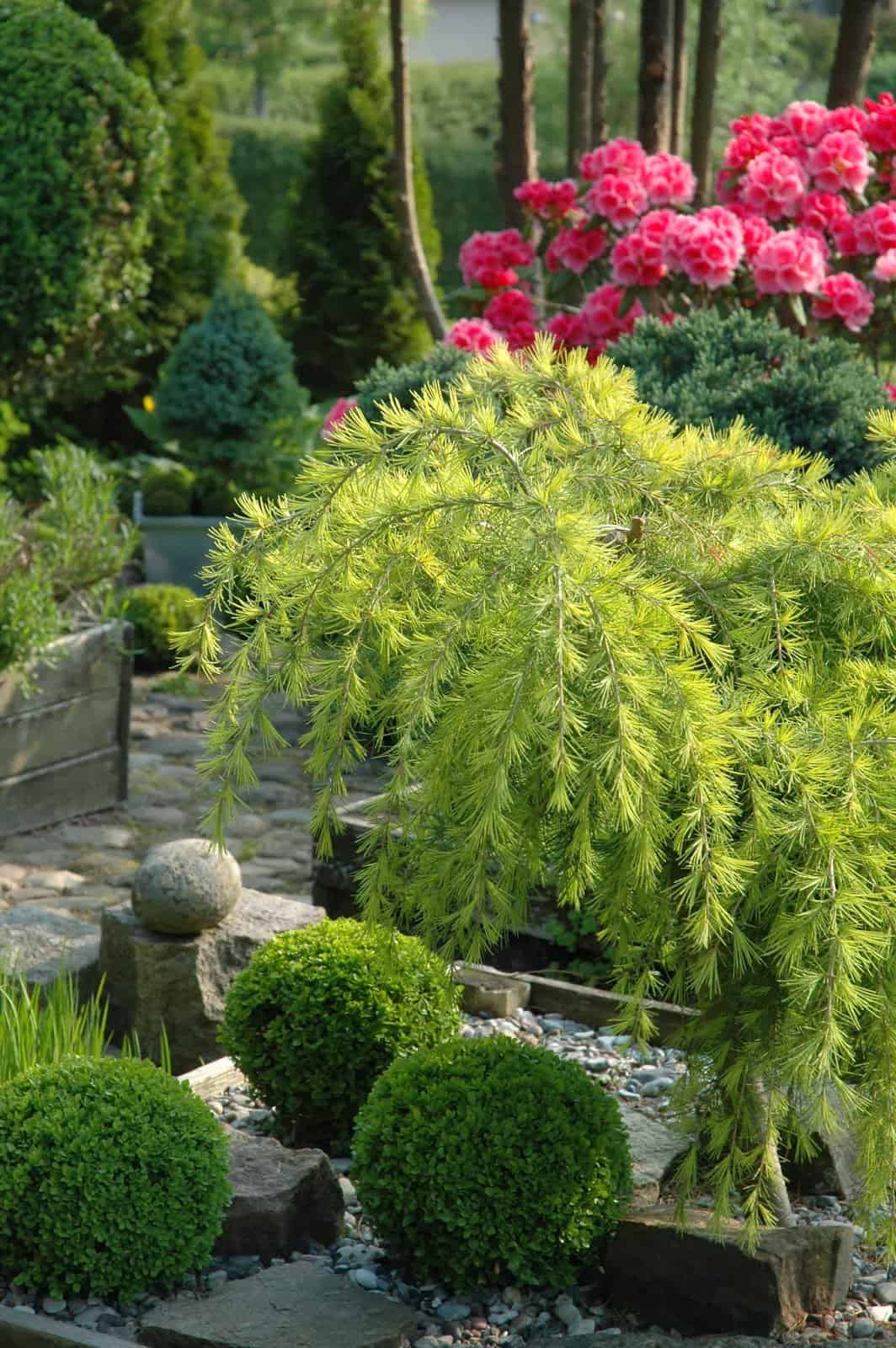
Plants as sculpture
This raised bed idea charmed me, too. Why not have a raised garden bed filled with box balls, rectilinear boulders, river rock, and a weeping larch (I think that is what that is?). Who says raised beds are just for vegetable gardens? And why not create a collage of interesting shapes from a variety of natural materials? This planting is really more about sculpture.
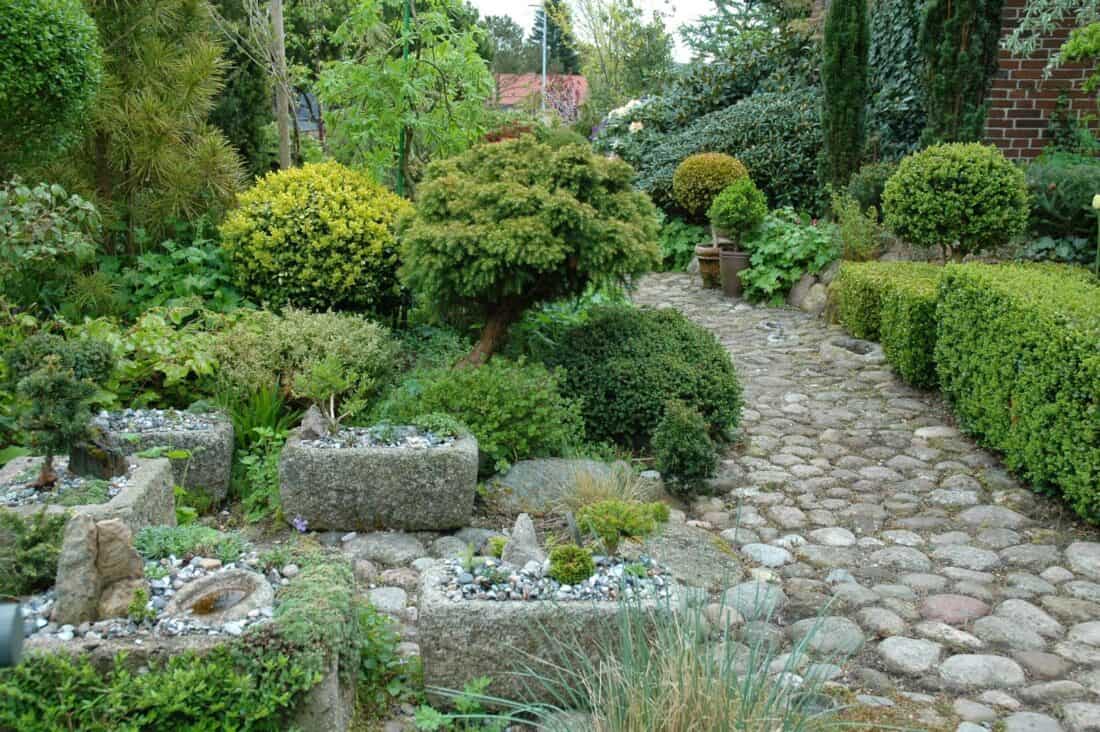
This garden certainly isn’t devoid of flowers, but I am finding that I am increasingly drawn to those places that aren’t too floriferous. This haven of textures is gorgeous. It strikes me that it is really a cross between a rock garden, a topiary garden, and perhaps a cottage-style garden. I am studying every detail for inspiration.
I’d love to hear what you found inspiring in this garden…make sure you check out Inger and Jørn’s website and report back with any other fantastic discoveries.
-Rochelle
Havetid is generally open to visitors annually in the summer. Check the website for upcoming dates.
images from Havetid
Other posts you might be interested in:
+comments+